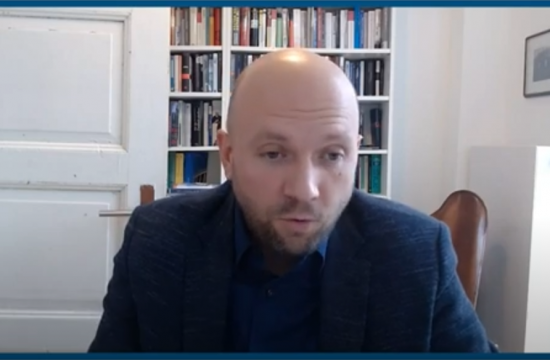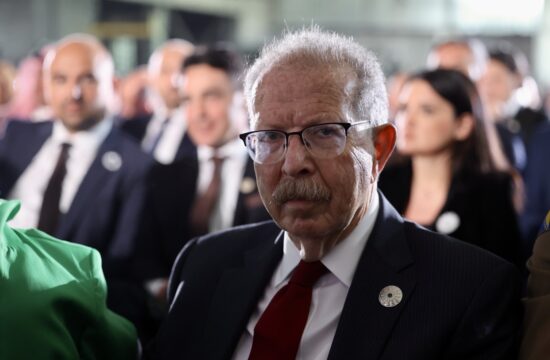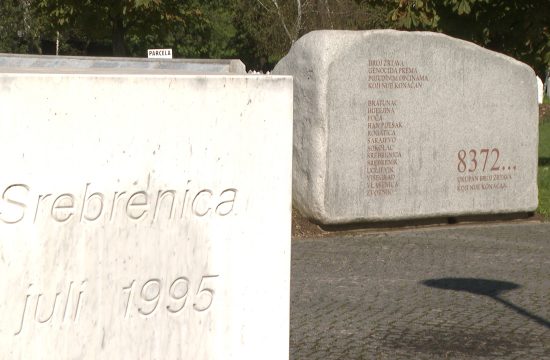Professor of philosophy, holocaust and genocide, Dr. David Pettigrew, urged Bosnia’s top international official to help victims of concentration camps near Prijedor erect one or more monuments there, arguing that the move would give them a sense of justice and contribute to reconciliation.
Co-signed by a number of survivors and activists, the letter to Austrian diplomat Valentin Inzko calls for “a memorial for the 3,167 victims of the aggression perpetrated by the Bosnian Serbs against non-Serbs in Prijedor Municipality, which began in 1992.”
The atrocities have been extensively documented in the proceedings and convictions of the International Criminal Tribunal for the former Yugoslavia, “including on appeal, for the crimes that were committed in Prijedor Municipality,” the letter said.
Instead of allowing the inmates to erect a monument at the sites of the concentration camps or in Prijedor itself, the city’s authorities are glorifying the perpetrators, it said.
The comment referred to the Trnopolje camp where authorities allowed a memorial to fallen Serb soldiers to be erected but rejected the request of survivors to erect one for the victims. This kind of discrimination constitutes a human rights violation, as well as a violation of the Dayton Peace Accords, the letter said, referring to the 1995 peace agreement that ended Bosnia’s 1992-95 war.
Annex 7 guaranteed the right of refugee return “without risk of intimidation, persecution, or discrimination” and the parties agreed to create “social conditions conducive to the voluntary return and harmonious reintegration of refugees and displaced persons, without preference for any particular group,” the letter cited the Accords.
Therefore the prohibition of a memorial for the victims is a form of humiliation and psychological intimidation that discourages refugee return and prevents possible reconciliation such a memorial could facilitate, the letter concludes.
Atrocities committed by Bosnian Serb forces were part of a plan to remove all non-Serbs from the Prijedor area in an attempt to create a Serb-only region and annex it to neighboring Serbia. The process was brutal and involved the shelling of civilian homes, mosques, murders and expulsions.
The letter reminded High Representative Inzko that “witnesses reported houses being burned with civilians still inside. Groups of civilians were seized and transferred to concentration camps, including Omarska, Keraterm, and Trnopolje,” where they “suffered interrogations, inhumane conditions, food deprivation, humiliation, beatings, and murder. Women faced rape.” Thousands died of beatings and other types of mistreatment.
In his recent book, Death in the White House, one of the survivors described what was going on in the notorious “White House” of the Omarska camp.
“I watched my friend's skull cave in from a heavy blow, as his blood spattered everywhere. …I felt a sharp blow to my left kidney…I looked around and saw my attacker wearing the uniform of a policeman… He hit me again. And again, until I could not take it anymore and collapsed to my knees with a cry of pain…he moved on to my head. I felt warmth as blood spurted from my face…I passed out,” Mirsad Causevic wrote.
“Everyday brought new indignities, new cruelties, as dozens would perish to satisfy their bloodlust,” he wrote.
Having in mind all the crimes committed in the Prijedor area, the UN war crimes tribunal in The Hague found that Bosnian Serb leader Radovan Karadzic was guilty of being part of an effort “to permanently remove the Bosnian Muslims and Bosnian Croats from Bosnian Serb-claimed territory.”
The existence of such a plan was confirmed in the first trial in front of the tribunal as well as in the last, the letter said, adding that “the project of Republika Srpska was understood as one that was eliminationist or genocidal in nature.”
“When a group of human beings has been specifically targeted for elimination it becomes all the more urgent to preserve the memory of the victims. Advocacy for a memorial in Prijedor dedicated to all the victims will be an important first step toward justice and reconciliation,” which depend on recognition of the Bosnian Serb population of the crimes that were committed, the letter said.
“This is why it is so important for the memorials for the victims to be installed in shared public locations in Prijedor,” despite the recent upsurge of ultranationalist rhetoric in Republika Srpska and by the implied threats, the letter said.
“We urge you to reach out to local activists and organizations to determine a number of suitable locations that have been proposed for memorials at Trnopolje, in Omarska, and in the center of Prijedor,” the signatories concluded.
Dr. Pettigrew teaches Philosophy and Holocaust and Genocide Studies at the Southern Connecticut State University, is a Member of the Yale University Genocide Studies Programme Steering Committee; Board Member at the Bosnian-American Genocide Institute and Education Center, Member of the International Team of Experts to the Institute for Research of Genocide in Canada and Board Member to the Post-Conflict Research Center in Sarajevo.




